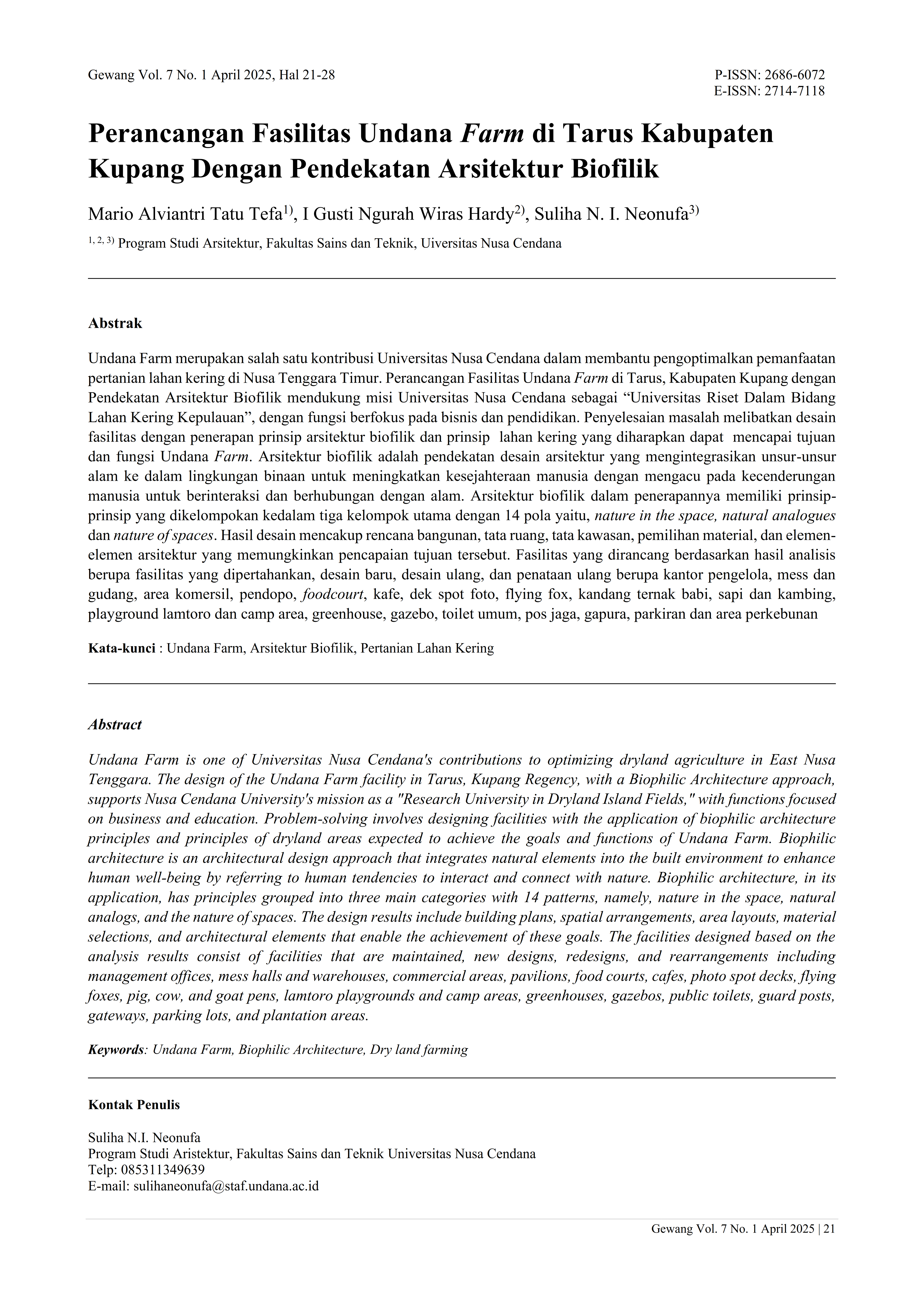Perancangan Fasilitas Undana Farm di Tarus, Kabupaten Kupang Dengan Pendekatan Arsitektur Biofilik
Main Article Content
Abstract
Undana Farm is one of Universitas Nusa Cendana's contributions to optimizing dryland agriculture in East Nusa Tenggara. The design of the Undana Farm facility in Tarus, Kupang Regency, with a Biophilic Architecture approach, supports Nusa Cendana University's mission as a "Research University in Dryland Island Fields," with functions focused on business and education. Problem-solving involves designing facilities with the application of biophilic architecture principles and principles of dryland areas expected to achieve the goals and functions of Undana Farm. Biophilic architecture is an architectural design approach that integrates natural elements into the built environment to enhance human well-being by referring to human tendencies to interact and connect with nature. Biophilic architecture, in its application, has principles grouped into three main categories with 14 patterns, namely, nature in the space, natural analogs, and the nature of spaces. Integration of natural elements such as gardens, green plants, use of natural light, rainwater utilization, and use of natural materials and forms form the basis of the design. The design results include building plans, spatial arrangements, area layouts, material selections, and architectural elements that enable the achievement of these goals. The facilities designed based on the analysis results consist of facilities that are maintained, new designs, redesigns, and rearrangements including management offices, mess halls and warehouses, commercial areas, pavilions, food courts, cafes, photo spot decks, flying foxes, pig, cow, and goat pens, lamtoro playgrounds and camp areas, greenhouses, gazebos, public toilets, guard posts, gateways, parking lots, and plantation areas.
Downloads
Article Details
This license enables reusers to distribute, remix, adapt, and build upon the material in any medium or format, so long as attribution is given to the creator. The license allows for commercial use

